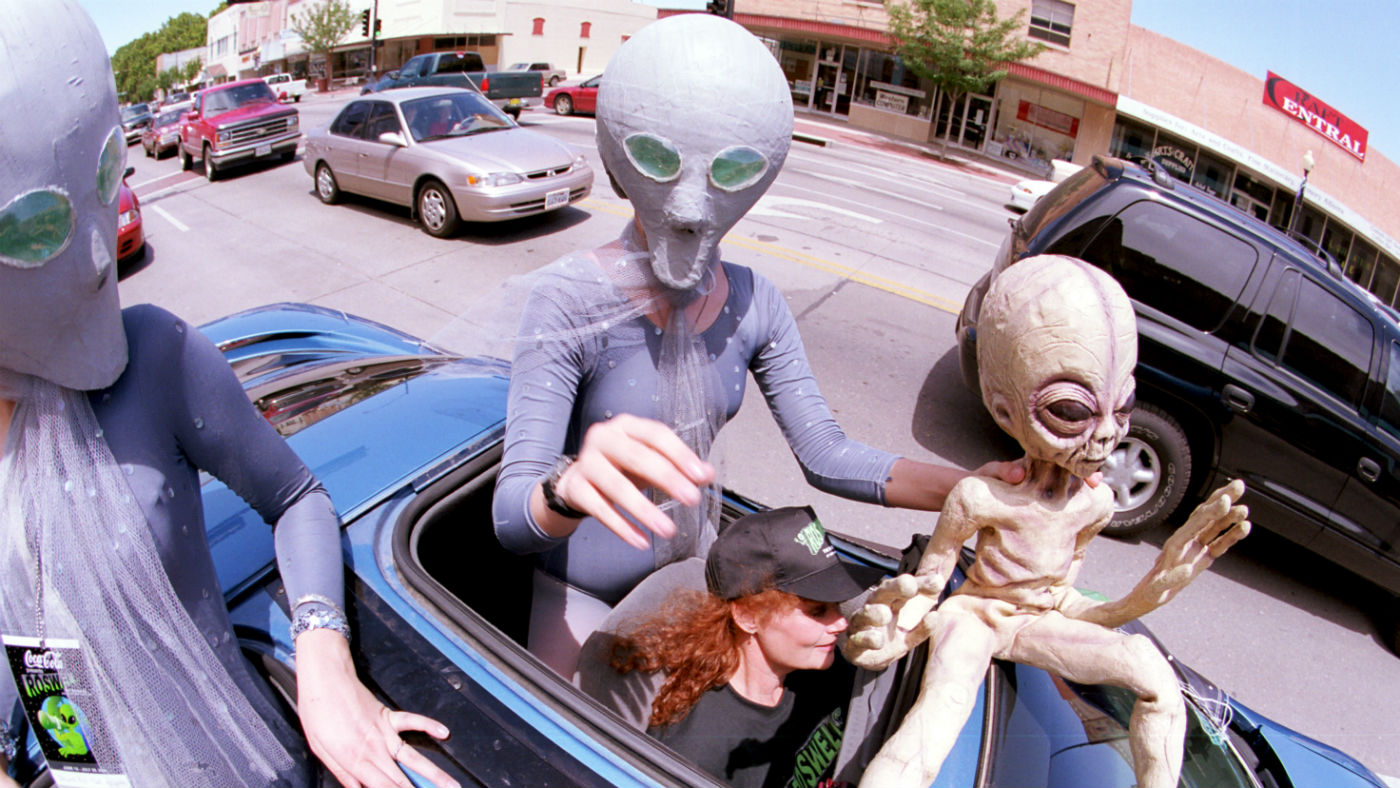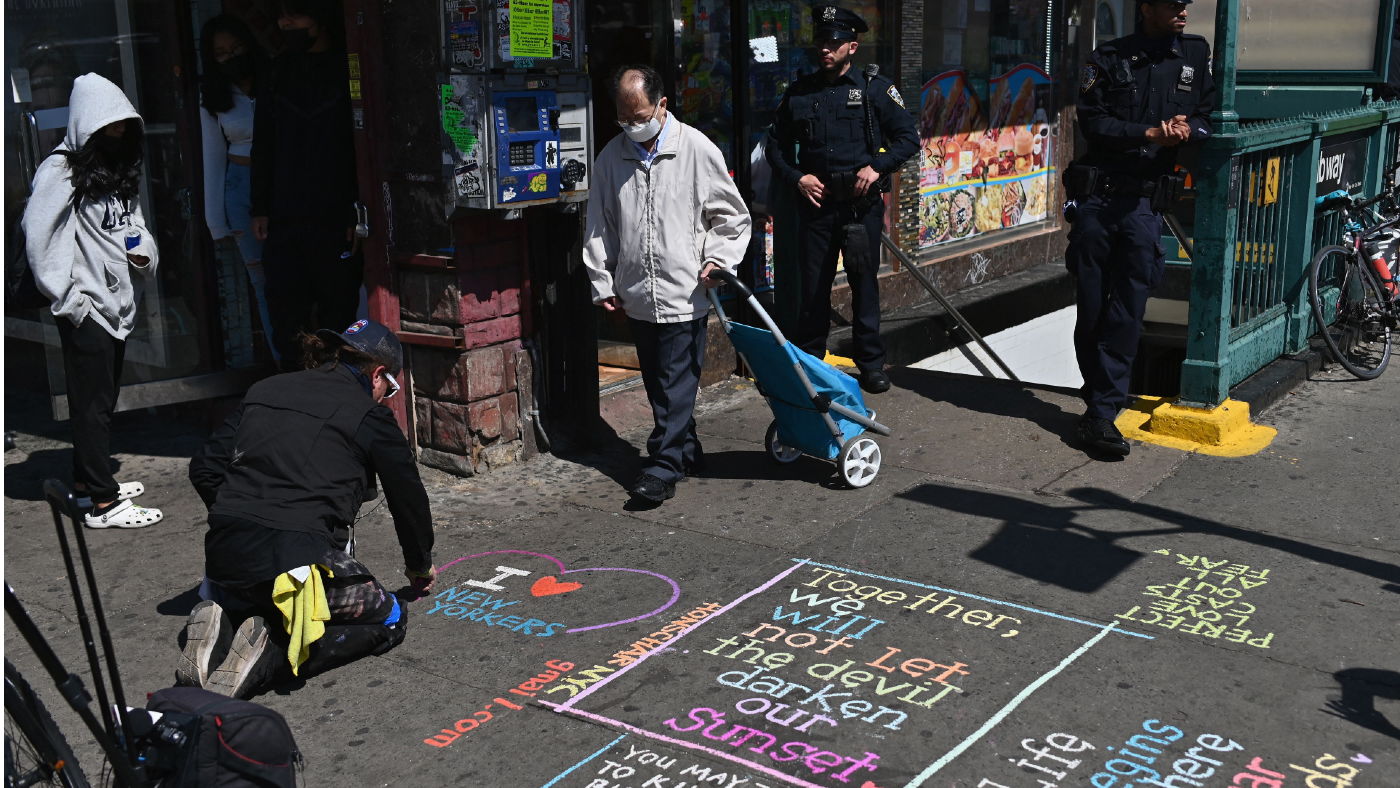Conspiracy theorists ‘more likely to commit crimes’
Psychologists find believers are more inclined to accept and actively engage in antisocial behaviour

A free daily email with the biggest news stories of the day – and the best features from TheWeek.com
You are now subscribed
Your newsletter sign-up was successful
Conspiracy theorists are more inclined to accept and actively engage in antisocial behaviour and more likely to commit low-level crimes, two new psychology surveys have found.
A study published in the British Journal of Social Psychology revealed people who subscribe to conspiracies are more accepting of everyday crime, such as trying to claim false refunds or compensation from shops.
A second concluded that exposure to theories outside of the accepted norm made people more likely to engage in everyday low-level crime in the future.
The Week
Escape your echo chamber. Get the facts behind the news, plus analysis from multiple perspectives.

Sign up for The Week's Free Newsletters
From our morning news briefing to a weekly Good News Newsletter, get the best of The Week delivered directly to your inbox.
From our morning news briefing to a weekly Good News Newsletter, get the best of The Week delivered directly to your inbox.
The Independent says conspiracy theorists “have previously been associated with prejudice, political disengagement and environmental inaction”, but researchers have proven how a greater acceptance and proclivity towards crime is directly linked to an individual’s feeling of a lack of social cohesion or shared values.
Professor Douglas told Phys.org: “Our research has shown for the first time the role that conspiracy theories can play in determining an individual’s attitude to everyday crime. It demonstrates that people subscribing to the view that others have conspired might be more inclined toward unethical actions.”
However, belief in conspiracy theories is far more widespread that most people think.
In 2015, University of Cambridge research found most Britons ticked a box when presented with a list of just five theories, ranging from the existence of a secret group controlling world events, to contact with aliens.
A free daily email with the biggest news stories of the day – and the best features from TheWeek.com
“This suggests that, contrary to popular belief, the typical conspiracy theorist is not a middle-aged man living in his mother's basement sporting a tinfoil hat,” says the BBC.
“When you actually look at the demographic data, belief in conspiracies cuts across social class, it cuts across gender and it cuts across age,” says Professor Chris French, a psychologist at Goldsmith's, University of London.
It also cuts across political divides, with research from the US concluding whether you are on the left or the right, you are just as likely to see plots against you.
-
 The 8 best TV shows of the 1960s
The 8 best TV shows of the 1960sThe standout shows of this decade take viewers from outer space to the Wild West
-
 Microdramas are booming
Microdramas are boomingUnder the radar Scroll to watch a whole movie
-
 The Olympic timekeepers keeping the Games on track
The Olympic timekeepers keeping the Games on trackUnder the Radar Swiss watchmaking giant Omega has been at the finish line of every Olympic Games for nearly 100 years
-
 Alex Jones ordered to pay almost $1bn to Sandy Hook families
Alex Jones ordered to pay almost $1bn to Sandy Hook familiesSpeed Read ‘Massive damages award may ‘doom’ conspiracy theorist’s Infowars media empire
-
 What we know about the Copenhagen mall shooting
What we know about the Copenhagen mall shootingSpeed Read Lone gunman had mental health issues and not thought to have terror motive, police say
-
 Texas school shooting: parents turn anger on police
Texas school shooting: parents turn anger on policeSpeed Read Officers had to be urged to enter building where gunman killed 21 people
-
 DJ Tim Westwood denies multiple sexual misconduct allegations
DJ Tim Westwood denies multiple sexual misconduct allegationsSpeed Read At least seven women accuse the radio and TV presenter of predatory behaviour dating back three decades
-
 What happened to Katie Kenyon?
What happened to Katie Kenyon?Speed Read Man charged as police search for missing 33-year-old last seen getting into van
-
 Brooklyn subway shooting: exploring New York’s ‘steep decline in law and order’
Brooklyn subway shooting: exploring New York’s ‘steep decline in law and order’Speed Read Last week, a gunman set off smoke bombs and opened fire on a rush-hour train in the city
-
 How the Capitol attack investigation is splitting the Republicans
How the Capitol attack investigation is splitting the RepublicansSpeed Read Vote to censure two Republican representatives has revealed deep divisions within party
-
 Is sentencing a Nazi sympathiser to read Shakespeare an appropriate punishment?
Is sentencing a Nazi sympathiser to read Shakespeare an appropriate punishment?Speed Read Judge seemed to think introducing student ‘to high culture’ would ‘magically make him a better person’ said The Daily Telegraph